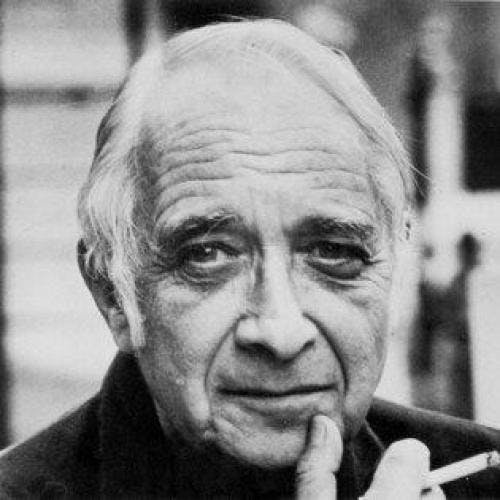
A review of Science and Criticism: The Humanistic Tradition in Contemporary Thought by Herbert J. Muller.
The first intention of Mr. Muller’s book is frankly pedagogic—it undertakes to expound the leading ideas of contemporary science as exemplified in physics, biology, psychology, sociology and anthropology. Its usefulness is available to any reader, but it is aimed particularly at literary critics, its purpose being to destroy the straw-man of science which the more philosophical literary minds are in the habit of attacking and to replace it witha true conception of what science actually is.
The literary resentment of science is based on the belief that science conceives a universe of brute fact in which the sole principle of explanation is mechanism, in which the conception of human free will is impossible, in which mind is but the passive recorder of events and—perhaps most important of all—in which “values” have no validity. The literary philosophers conceive the alternative to scientific naturalism to be some form of religion, although in practice this is usually no more than a religiosity which takes its chief impulse from the ingrained, unconscious pragmatism of the “believer”—he needs a faith and will have it, for it does him good. At first glance, this literary hostility to science seems the continuation of a crisis in culture which began early in the nineteenth century. In actual fact, however, it is merely the vestige of that historical situation, ritualistically continued and maintaining the appearance of life by feeding on ignorance: Mr. Muller is polite but blunt in saying that literary men of philosophic bent know little about science. What they so courageously defy is the science of Tennyson’s “The Two Voices,” not science now in use.
Mr. Muller, who declares his debt to the pragmatism of James and the instrumentalism of Dewey, emphasizes everything in modern scientific thought that exemplifies the interplay of mind and fact, that takes scientific ideas to be not the literal descriptions of events but rather ways of fertilely conceiving and dealing with events. He is at pains to demonstrate that for science mind is no longer the passive receiver of ideas but their creator. In this view of things, values themselves, though subject to the same tests by which scientific ideas are judged—among other criteria, by their usefulness in conceiving and dealing with events—have an equal status with scientific ideas and are not to be judged as “mere” subjectivisms. From here Mr. Muller goes on to his larger intention, which is one of cultural synthesis—the establishment of a humanism which can look forward with a growing science rather than backward with dogma, a synthesis in which science, art and morality, being equally pragmatic and instrumental, are in a natural alliance.
In the cogency of its intention, in the range of its intellectual view, in the shrewdness and precision of many of its critical remarks, Mr. Muller’s book is admirable and important. But something in the texture of the work keeps it from being equal to its author’s many gifts. In naturalistic writing it is so often the texture that fails to support the logic. Mr. Muller can be eloquent and witty, but he has a tendency to play martial music at the appearance of approved ideas, he is too often consciously salty and too easily relaxed; modeling himself on James’s manner, he lacks James’s muscle and bone. And warned by the style, I found something of its facility and relaxation in other elements of the book. In almost all matters of science I must be Mr. Muller’s pupil, but I am put on my guard against his instruction in physics and biology when I find him writing about Freud as facilely as he does, laxly accepting, for the sake of scientific catholicity, ideas in modification of Freud largely because they are ideas in modification, though from my knowledge of them they are merely plausible and dictated by optimistic, quasi-humanistic prejudices. And I cannot think that Mr. Muller is doing his cause a service by the easy admiration which enthrones Thomas Mann as the chief of the humanistic pantheon—by announcing in his first sentence that his position is “the traditional position of humanism, as represented in literature most honorably and conspicuously today by Thomas Mann,” and by being so quick to understand how contemporaries may be “simply awed by the Olympian qualities of Mann.” Mann is often a great novelist, but a humanism which takes him as its hero is likely to be merely traditional, Olympian and verbal.